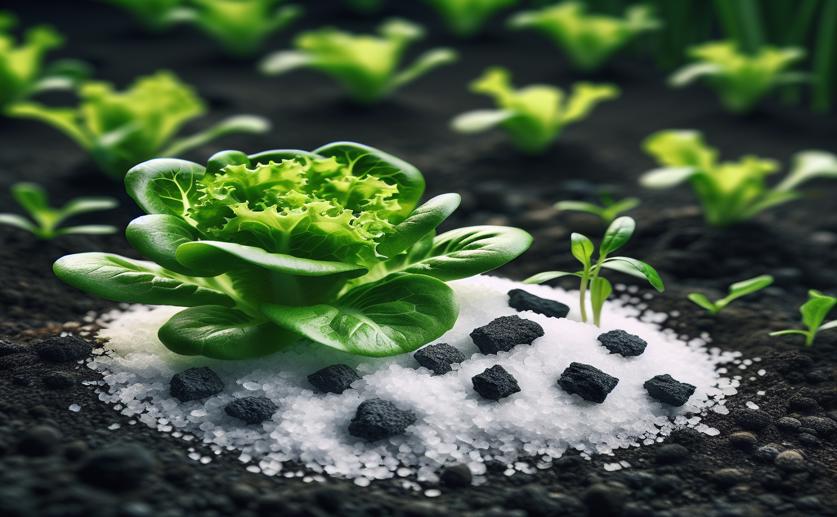
Growing Lettuce in Salty Soil with Charcoal Additives
Greg Howard
29th February, 2024

Image Source: Natural Science News, 2024
Key Findings
- In a University of Siena study, biochar improved lettuce growth under salt stress
- Biochar increased lettuce's weight, chlorophyll, and protein content
- However, biochar did not reduce the plant's sodium uptake
VegetablesAgriculturePlant Science
References
Main Study
1) Can lettuce plants grow in saline soils supplemented with biochar?
Published 29th February, 2024
https://doi.org/10.1016/j.heliyon.2024.e26526
Related Studies
2) Mitigation of salinity stress effects on kochia (Bassia scoparia L.) biomass productivity using biochar application.
3) Biochar improves the performance of Avena sativa L. grown in gasoline-polluted soils.
4) Foliar Application of Wood Distillate Alleviates Ozone-Induced Damage in Lettuce (Lactuca sativa L.).
5) Biochar Amendment Reduces the Availability of Pb in the Soil and Its Uptake in Lettuce.



 24th February, 2024 | Jim Crocker
24th February, 2024 | Jim Crocker